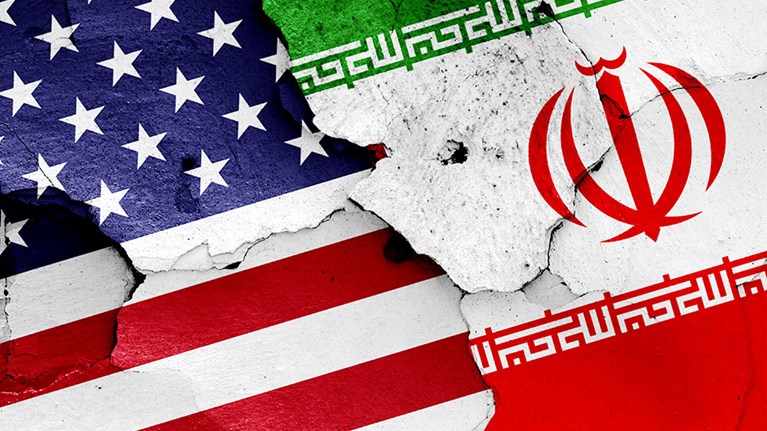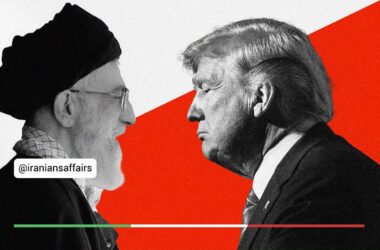What are the conditions of Iran today, and what options lie ahead for its future? What role will the United States play in each of these options, and what benefits or harms will it gain?
These are questions that, after the widespread wave of the popular revolution in Iran against the Islamic Republic regime, have been raised directly or indirectly among the people and political experts many times, and we have generally heard pessimistic answers about them. Pessimism that, although mostly intensified due to the presence of the Biden and Obama team in the White House, goes beyond that and is the result of the United States’ actions and strategies since the post-World War II era. A performance that has always shown a green light to America’s enemies and, beyond that, to the enemies of freedom worldwide, indicating that the United States is not inclined to engage with serious adversaries to defend freedom. Now, this strategy has reached a point where it seems that under the leadership of leaders like Obama and Biden, the United States is not even willing to defend its own American identity or engage with an enemy when threatened.
While some believe that this isolationism, excessive retreat, and cheap surrender of American hegemony in the world are consequences of President Bush’s preemptive defense strategy and the results of actions in Iraq, and now American governments prefer to not only deny preemptive defense but also to avoid even adequate and deterrent defense against aggressions. However, the reality is that this approach and strategy have a longer history in U.S. foreign policy than these instances, and historical facts, which have been often referred to by charismatic American figures as irreparable mistakes, show that the Iranian judgment about the U.S. approach isn’t entirely inaccurate.
For instance, and as one of the most significant facts, it’s enough to recall the bloody November of 1956 in Budapest. That’s where the Hungarian people stood with dreams of freedom against the brutal suppression of the communist regime, and the Soviet Red Army, without any hindrance, entered the country with their tanks to establish a reign of terror behind the Iron Curtain by massacring freedom-loving people and soldiers.
Was there an individual or a government more deserving than the United States at that time in the world that the Hungarian people could hope for assistance from, in defending against this absolute evil of the 20th century? But what was the result? President Reagan, who always criticized the performance of the U.S. government during that time, had written about it: “The human conscience, from this day to thousands of years later, will hear the cries of the Hungarian people pleading for help from the free world and the betrayal of the free world to these people.
For those who have heard the stories of the Cold War after the fall of the Iron Curtain, the level of U.S. indifference toward an enemy that, in those very days under Khrushchev’s leadership, was busy increasing the number and range of its nuclear weapons and submarines, and simultaneously threatening the European allies of the United States with nuclear bombardment, might be incomprehensible. However, the truth is that after World War II, the United States has consistently avoided entering territories marked by the Soviet Union or Russia. This is true for almost all presidents post-World War II, with the possible exceptions of President Reagan and President Trump. To the extent that even George W. Bush, who considered Iran and North Korea as the ‘axis of evil,’ refrained from any action against these two governments, which were within Russia’s sphere of influence. This can be seen as a continuation of the ‘peaceful coexistence’ policy with Russian communism during the Cold War era.
Another instance where the United States clearly abandoned freedom-seeking people, allowing another dictatorship to suppress and displace them with the backing of Russia, was Syria. Here, the United States again preferred a ‘peaceful coexistence’ with the Russians over the lives of hundreds of thousands of Syrians, the freedom of a nation, and even the security and peace of the Middle East, refraining from entering an area under the Kremlin’s influence.
President Trump’s decisive decision, which culminated in the missile strike on Assad’s military bases on the dawn of April 14, 2018, successfully halted the chemical bombardment of the Syrian people by Assad’s forces once and for all. This was while during the entire Obama presidency, not only chemical bombings, barrel bombings, cluster bombings, but also heinous crimes like the massacre of the people of Houla, received no real response from the United States other than ineffective condemnations and fruitless statements, making slaughter and suppression of the people the cheapest strategy for the continuation of Assad’s dictatorship.
This appeasement towards evil and criminal rulers will not only tarnish America’s image among freedom advocates and believers in American global leadership. Apart from this global impact, which directs U.S. allies towards befriending China and Russia, it will also have profound and irreparable effects on other free countries and on the United States itself. Among these effects is that these criminal regimes, taking a cue from the Soviet method, exploit the U.S. strategy and create platforms in the media, universities, and U.S. party lobbies to justify and normalize their actions. By spending a portion of the money they plunder from their own people and nation, they quietly buy legitimacy for themselves within the heart of the United States. Once they consolidate their position in their own country and region, they will eventually turn their attention to America itself.
In an article published in The Washington Post in November 2012, Condoleezza Rice warned about the consequences of Obama’s mistakes regarding the Syrian crisis, writing, “Syria could be the last bastion of Middle East collapse… With the fall of Syria, Sunnis, Shiites, and Kurds are drawn into a regional network of sectarian allegiances. Karl Marx once called on the workers of the world to unite beyond national borders and set aside the false consciousness of national identity. But today’s Karl Marx of the world is the Islamic Republic of Iran, which seeks to extend its influence among the Shiites of the world, unite them under its flag, and in this endeavor uses the terrorist group Hezbollah and the Shiite militants of southern Iraq. Syria is their bridge to the Arab Middle East, and Tehran does not hide its deployment of military and security forces to support Assad. But where is America? America has been trying for months to get the Russians and Chinese to vote for ineffective UN resolutions aimed at ending the bloodshed in Syria. It’s as if Moscow will abandon Assad, or China is concerned about chaos in the Middle East.”
However, Rice had subsequently proposed two crucial and immediate solutions to the U.S. government:
Recognizing the newly formed opposition against Assad, alongside France and Britain.
Defensive support, oversight, and armaments for this alliance, provided that the post-Assad process is determined within a comprehensive framework.
Rice correctly emphasized that for this task, the weight and influence of the United States are essential. Leaving this matter to regional powers, whose interests don’t align with those of the United States, would exacerbate sectarianism.
It is clear that now, looking back at that article after a decade, we see that all the right approaches the former Secretary of State had suggested were ignored. All the mistakes she warned against happened, and the region is still witnessing various sectarian and religious conflicts in which the Islamic Republic plays a role.
Rice, at the beginning of her article, also precisely mentioned the structure of the Middle East. She wrote that aside from Iran, Egypt, and Turkey, which are historical nations, the rest of the countries in this region are artificial, the result of divisions by Britain and France, delineated without consideration for sectarian and religious affiliations.
By juxtaposing these statements and observing the current state of Iran, perhaps we can now better answer the questions posed at the beginning of this note. Answering the question of Iran’s position in the eyes of America, as one of the three historical countries with thousands of years of national identity in this region, and what role it should play in the region, facilitates addressing subsequent questions.
Looking at Iran’s role as a pillar of stability and peace in the region before the overthrow of its legitimate government in 1979 makes answering this question easier.
In the last months of 2022, Iran witnessed a national revolution to end the corrupt and criminal regime of the mullahs. While the regime yet again resorted to brutally suppressing the people, the United States not only refrained from intervening in Iran’s affairs and limited itself to issuing ineffective statements but also inhumanely and anti-freedom, exploited the situation for a political deal with the Islamic Republic.
However, the Iranian people, familiar with the nature of democratic governments in the United States, weren’t surprised by the Biden administration’s behavior. What’s crucial, however, is the perspective that shapes American policy towards Iran in other aspects.
Are American Republicans and conservatives going to content themselves with nuclear containment and sanction resolutions for a peaceful coexistence with the ‘axis of evil’, just like during the Cold War era? Are they going to adapt to the continuation of this mafia-like regime, or is there a will in the U.S. to put an end to this dark chapter in history?
If such a determination exists among the political forces of the United States, then one can discuss how to support the people’s revolution against the Islamic Republic regime, and which alternative governance system would best benefit Iran, the region, and the United States.
To get an answer to this question and understand the favored policy of American conservatives regarding Iran, waiting for the 2024 elections is not a wise move. It will provide an opportunity for the Biden administration to facilitate the financial and political revival and reconstruction of the Islamic Republic. Therefore, if a serious decision exists in the U.S., the Iranian people should soon see its signs.







